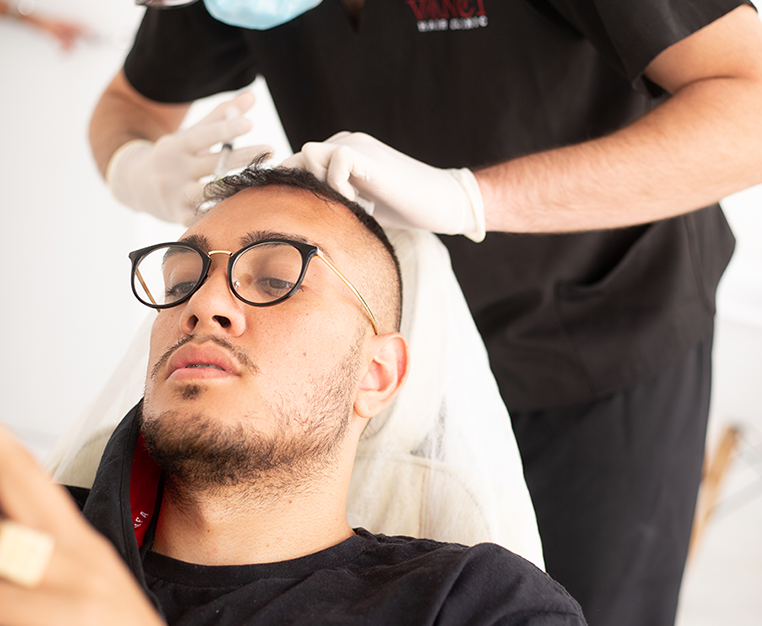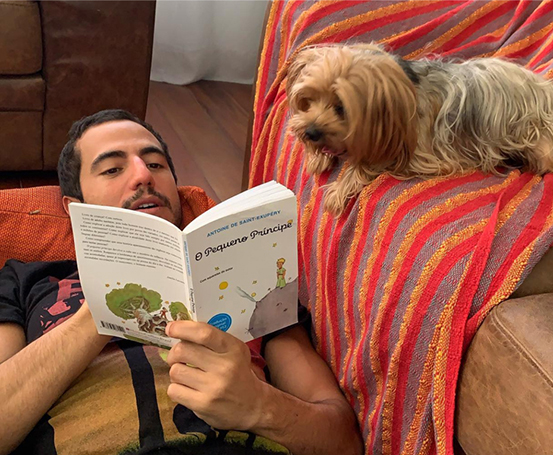The term ‘alopecia’ refers to hair loss of any kind. Androgenetic alopecia, for example, is the most common type of hair loss experienced by both men and women. When the average person talks about alopecia, however, they usually mean the more dramatic kind of hair loss known as alopecia areata. That’s the kind experienced by celebrities like Jada Pinkett Smith. Up until now, there has been no effective remedy for this most distressing of hair loss conditions. Various treatments have been used to manage the condition, including topical treatments, immunotherapy and laser treatment, all with limited success. Recently, however, new medications for its treatment have been licensed in the United States.
Is this the beginning of the end for alopecia areata? Read on to find out more!
What is Alopecia Areata?
Alopecia areata is an autoimmune disorder that affects the hair follicles, often resulting in dramatic hair loss. In this condition, the immune system mistakenly attacks the hair follicles, causing them to shrink and slow down hair production. No one is entirely certain why this happens, but it is likely to be a mix of genetic and environmental factors.
The most common symptom of alopecia areata is the sudden onset of small, round bald patches on the scalp. However, it can also affect other areas of the body, such as the eyebrows, eyelashes, and beard. In some cases, complete loss of scalp hair (alopecia totalis) or total loss of body hair (alopecia universalis) may occur.
Alopecia areata can affect anyone, regardless of age or gender, although it often begins in childhood or early adulthood. The condition varies in severity and can be unpredictable, with hair regrowth possible in some cases, while in others, the hair loss may be permanent. It is not contagious or life-threatening, but it can have a significant impact on a person’s self-esteem and emotional well-being.
Breakthrough
Not so long ago, this blog covered the news that an academic team, led by Yale dermatologist Dr Brett King, had achieved a breakthrough in the battle against alopecia areata. The team conducted successful clinical trials of the drug baricitinib, and in 2022, the U.S. Food and Drug Administration (FDA) issued the first licensed treatment for adults suffering from severe alopecia areata. That treatment, trading under the brand name Olumiant, went on the market last year.
The development was broadly welcomed by alopecia groups in the United States. The National Alopecia Areata Foundation (NAAF), for example, stated, ‘NAAF wants more choices for our patient community and with the approval of Olumiant, there are now new treatment expectations being established in alopecia areata care.’
UK Developments
Olumiant was also given the green light by the UK’s Medicines and Healthcare Products Regulatory Agency (MHRA), meaning that the medication can be sold in the UK and used for the treatment of adults with severe alopecia areata.
Authorities in the UK are now considering whether Olumiant will be funded by the National Health Service (NHS) or whether it will have to be purchased privately. An appraisal process of baricitinib carried out by the National Institute for Health and Care Excellence (NICE) initially recommended that the drug should not be commissioned by the NHS for the treatment of severe alopecia areata. However, this decision has been appealed by Alopecia UK, and the final report is still pending.
Treatment for Adolescents
That’s not the end of the story, however. Earlier this year, Dr King announced that a different drug, ritlecitinib, had been tested in clinical trials with adolescents. The results were impressive. As much as 80% of scalp hair lost to alopecia areata by adolescent participants was restored by the new medication in 25% of cases. Other participants experienced lower rates of growth. Additionally, no major side effects were experienced by the trial group.
Following due consideration of the research group’s findings, the FDA gave its approval to this drug, too. The new medicine will trade under the name Litfulo. The drug is an oral treatment suitable for alopecia areata sufferers twelve years old and above. It is the only drug the FDA has licensed for children so far.
Conclusion
Alopecia areata is one of the most distressing kinds of hair loss. It affects all aspects of a sufferer’s life, from social activities to work or study commitments. Emotionally, it can be devastating, particularly for young people. That’s why news of new medications that can dramatically improve the situation is to be warmly welcomed.
If you’re concerned about hair loss or thinning, you should speak to a hair specialist as soon as possible. Vinci Hair Clinic can help with that. All our new clients are entitled to a free, no-obligation consultation. This can take place in person at one of our clinics or, if that isn’t possible, we can do an assessment of your hair over the phone using photographs. Get in touch and book your appointment today!



